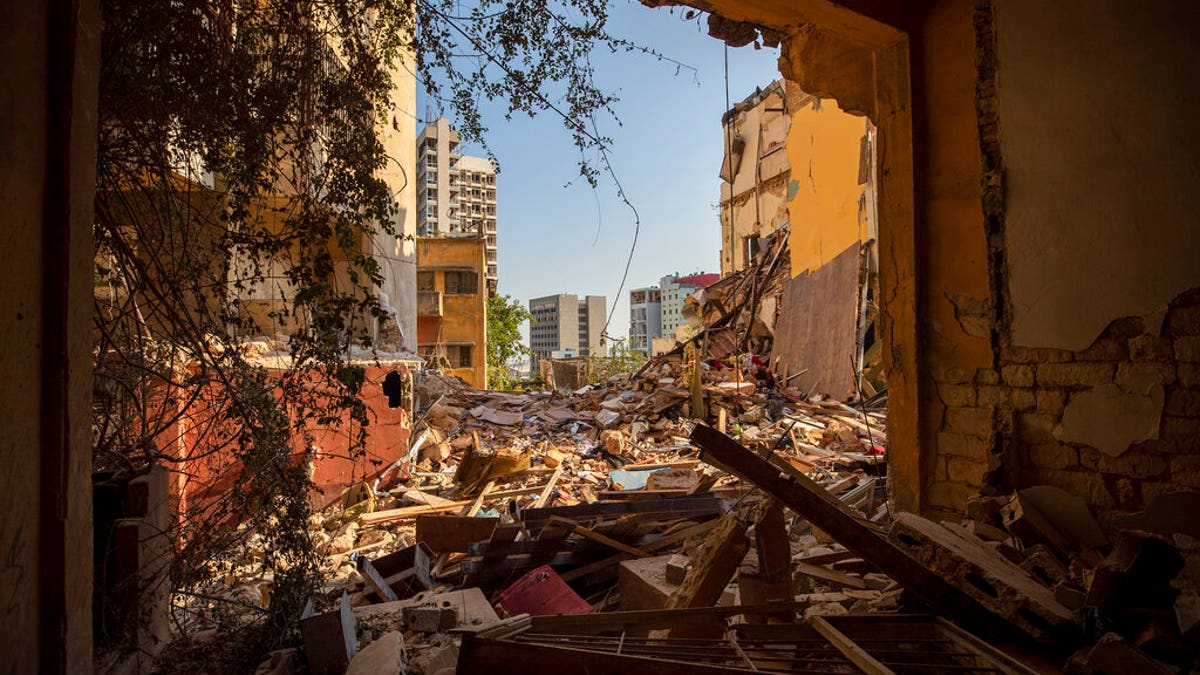Fox News Flash top headlines for August 13
Fox News Flash top headlines are here. Check out what's clicking on Foxnews.com.
Lebanon's Parliament approved a state of emergency Thursday following the deadly blast in Beruit, leaving activists worried that sweeping powers granted to the military will forcibly silence anti-government protests.
LEBANON'S LEADERS WERE WARNED IN JULY THAT EXPLOSIVES 'COULD DESTROY' BEIRUT, REPORT SAYS

Anti-government protesters use fireworks against Lebanese riot police during a protest in the aftermath of last Tuesday's massive explosion. (AP Photo/Hassan Ammar)
Prime Minister Hassan Diab and his entire cabinet resigned earlier this week as reports surfaced that officials had been aware for years of the 2,750 tons of ammonium nitrate stored in Beirut's port, which caught fire Aug. 4 causing an explosion that ravaged the capital city.
At least 220 people were killed and 7,000 others injured.
Parliament's vote on the two-week state of emergency formalized government actions taken immediately after the explosion on Aug. 5.
The order gives the army broad power to curb free speech, freedom of assembly and freedom of the press, as well as to enter homes and arrest anyone deemed a security threat under the guise of protecting a city in turmoil.
Protesters distraught over the destruction of Beirut, now covered in rubble, have taken to the streets for days to condemn what they say was the government's mishandling of storage of the chemicals often used in agricultural fertilizer.

Anti-government protesters in Beirut, Lebanon, on Monday, Aug. 10, 2020. (AP Photo/Hassan Ammar)
Gunfire and tear gas were exchanged between police and protesters, who lit fires, threw rocks and chanted for a "revolution."
“There is incredible chaos," Nizar Saghieh, a human rights lawyer, told the Associated Press. He said the state of emergency's only justification is to extend the power of the state and security agencies and “control the opposition."
“We were waiting for the army to help in reconstruction, not be an extension of power,” Saghieh said.
Lebanese government officials have largely avoided the scene of destruction and have not been seen in the streets passing out aid, Fox News' Trey Yingst reported from Beirut.

Destroyed buildings from a heavily damaged room near the site of the explosion in the seaport of Beirut. (AP Photo/Hassan Ammar)
Instead, international agencies and organizations have flocked to the city to help. France, in particular, has led efforts, talking to political parties to hasten the formation of a new government and curb corruption in the city.
The French defense minister and U.S. Under Secretary of State for Political Affairs David Hale are both expected to push for sweeping reforms during visits to Lebanon Thursday.
CLICK HERE FOR THE FOX NEWS APP
The Associated Press contributed to this report.





















